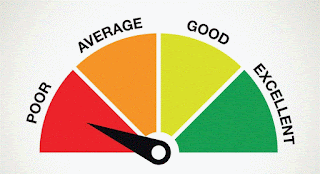
"Wheel of Fortune" is one of America's longest-running game shows, giving away more than $200 million in cash and prizes since its premiere in 1975. But behind all that wheel spinning, hand-wringing, and gown-gazing, the show has something more to offer astute viewers. If the game is financial security and the wheel is just a series of chances to make or lose money, then watching Wheel of Fortune can teach us a few fundamental financial lessons.
1. Pay Attention
In every game, there seems to be at least one "Wheel of Fortune" player who isn't quite paying attention. I can't blame them. Under those lights, in front of that crowd, and in that hothouse of pressure, I'd be lucky just to stay vertical. Players repeat letters that have already been called, solve puzzles partially, and give other players an advantage, or mispronounce words so badly that their answer can't be accepted. These are cringe-worthy moments that make me wonder about the level of self-flagellation that happens once the cameras are off.
Not paying attention to our personal finances is just as risky. Being on financial autopilot costs money
. We don't adjust our savings rate as our income increases; we put off revising our withholding tax and continue to think that a big refund check at the end of the year is actually a good thing. Or we don't get around to canceling that unused gym membership and end up tithing $65.00 a month to a very unworthy cause.
When it comes to solving our own financial puzzles, not paying attention is a luxury most of us can't afford.
2. Think Creatively
If there's one skill that serves contestants well on "Wheel of Fortune," it's creative thinking. Solving those puzzles effectively means not letting your mind get too attached to a single potential outcome. For example, the partial clue, "h_ _ _es" could turn out to be horses, houses, or hoaxes. Finding the right solution means cycling through options quickly and creatively and trying to see how different possibilities might fit together.
The same is true of winning the financial game. Successful savers need to constantly source new avenues of income, savings, and investing. Getting locked into one path to the exclusion of all others limits potential and return. (See also: How Cash Flow Allocation Helps You Retire)
3. Seize the Moment
Smart players also seize rare moments, and it's exciting to see solid strategy pay off. For readers unfamiliar with the game, contestants are presented with one Prize Puzzle each show. In addition to the regular cash payout, the winner of the Prize Puzzle gets a deluxe vacation package. I can't tell you how many times I've seen players keep spinning that wheel even when it's obvious they've worked out the correct answer. All too often, these relentless players land on a "bankrupt" wedge and their competition swoops in to collect the trip to Nassau or Hawaii.
In our financial lives, the same thing can happen. We keep spinning that figurative wheel well past our moment to lock in a better mortgage rate, transfer our credit card balances to zero-interest introductory rate, or shake hands and finalize a smokin' bargain on a used car. I'm not advocating thoughtless action, but there are moments when calculated-but-quick action wins the day.
4. Don't Get Greedy
Sure, every game show is a gamble — that's the whole idea. But it's curious to watch players keep spinning the wheel when there are only one or two (quite obvious) letters remaining before the entire answer is spelt out before them. The motivation is obvious: collect more money. The risk is just is clear: get stung by that looming bankrupt wedge. Call me overly cautious, but with a comfortable lead and an answer in my head, that spinning wheel would come to a screeching halt. Vanna might even have time for a quick coffee break.
Same with my financial life, taking an unnecessary risk just to feed the idea of "more" seems counterproductive. I know it sometimes takes big risks to establish a big lead, but the potential pitfalls can be profound.
5. Stay in the Game
Even when it appears to make no financial sense at all, savvy "Wheel" contestants buy vowels. Buying vowels keep them in the game, keeps their mind churning for a solution, and keeps their competitors at bay (at least momentarily).
The financial rule behind this approach is simple: Sometimes you have to spend money to make money. Stretching tight budgets, sacrificing certain wants and needs, and forgoing a few of today's comforts can all help fund investments in our tomorrows — and that's an essential piece of any sound money management plan. Saving and investing keeps us in the game even when it's hard to see the big picture.
Bonus Round
At the risk of stretching this analogy too far, let's wrap things up by talking about the bonus round. On "Wheel of Fortune," the bonus round is the winning player's last chance to walk away with an even bigger payout. The player is given 10 seconds to solve a single puzzle; the minimum cash prize is $30,000, but it can go as high as $1 million for lucky players who've managed to score the requisite million-dollar wedge. (See also: Do You Know Where Your Net Worth Is?)
I call this part of the show the "financial independence" segment, closely mirroring retirement. Players who've managed to make it this far have done several things right and now simply have to up their game slightly to sail through to the end. Of course, a little luck doesn't hurt either. I guess life really does mirror art…or game shows (or both).
Are you a Wheel Watcher? If you could characterize your savings strategy by a game show, what show would it be?
Source: 5 Money Lessons I Learned From Watching Wheel of Fortune









